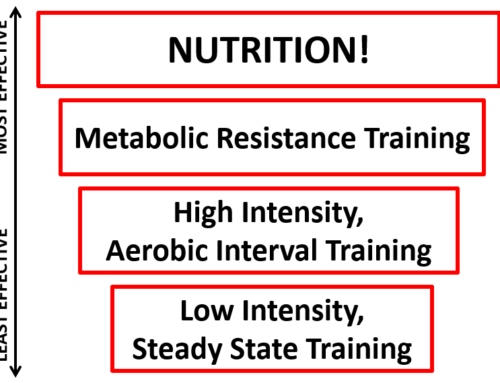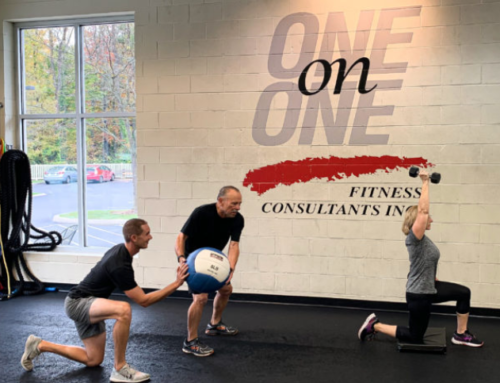
By The One on One Team
Last Updated: 3/3/24
Nutrition is an ever-evolving science and always a hot topic. Regardless of your health goals, drastic lifestyle changes can be tempting because they often produce fast results. However, small changes over time are a more reliable way to meet your goals. Whether you are trying to lose weight, get stronger, or simply improve the quality of your diet, being realistic about your goals and strategy to succeed is key. The following 5 suggestions can help you develop healthy nutrition habits.
- Say “yes” to lifestyle and behavior modifications and say “no” to fads.
How can you spot a fad diet? According to the Academy of Nutrition and Dietetics, these are some telltale signs:
- Weight loss of more than two pounds per week. Fast weight loss will rob you of muscle mass and bone density. You will also be more likely to regain the pounds quickly afterwards.
- Unlimited amounts of one food group, while restricting another. Even if you take a multivitamin, you will still miss some critical nutrients.
- Any program that claims increased weight loss if foods are eaten in specific combinations. There is no evidence that combining certain foods or eating at a specific time will help with weight loss.
- Any routine with strict options and limited choices. This is difficult to maintain long-term.
- Any program that emphasizes no exercise while dieting. Combining diet and exercise is the most effective strategy to improve health habits.
Quick fixes are tempting, but rebound weight gain, malnutrition, and possible decreased organ function are long-term risks that are simply not worth taking. A loss of one to two pounds per week may seem slow, but it is healthy and more likely to last. When you add it up over time, that slow loss can translate into a 25- to 50-pound loss in 6 months!
2. Habitually create a game plan.
When going to a party, a meeting, or any event with food, eat beforehand so that you are not completely starved. Consider what you will eat while there. Get into the mindset of choosing healthy options before stepping foot inside a restaurant. By having a game plan, you are leaving yourself less susceptible to sudden urges and impulse choices.
3. Reduce portion sizes.
Learning to see with your stomach and not your eyes is an important behavior change. Reducing portion sizes to amounts that leave you feeling satisfied, but not stuffed, is an excellent strategy. Use our hunger scale to help!
4. Cut calories with caution.
Dipping too low can often have more negative effects than positive, including a slower metabolism, decreased energy, and increased risk of binging on unhealthy foods. Instead, focus on smaller, more frequent meals to keep you strong, healthy, and satisfied.
5. Acknowledge how far you’ve come rather than how far you have to go.
Having an “all or nothing” mentality is a self-sabotaging concept. Maintain a “one day at a time” mentality and always celebrate small successes. Focus on the process and remember that small steps can lead to big accomplishments!
Be sure to talk with your trainer about what small changes you can make to help you reach your goals!




